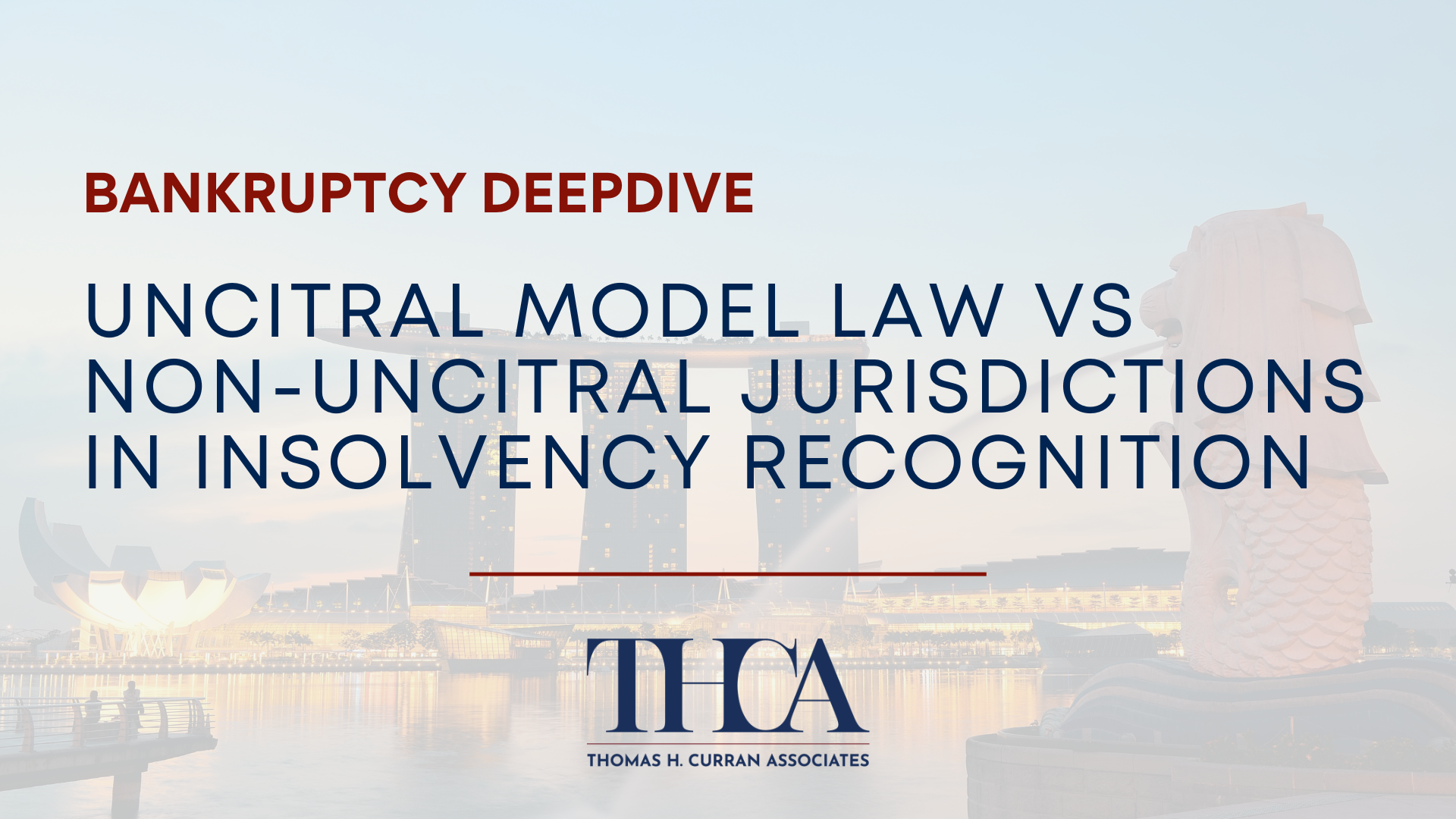When it comes to recognizing foreign insolvency judgments, not all jurisdictions play by the same rules. Those that have enacted the UNCITRAL Model Law on Cross-Border Insolvency, such as Singapore, provide a predictable and efficient system for recognizing and coordinating foreign insolvency proceedings.
In re Fullerton Capital Ltd., the Singapore Court of Appeal reaffirmed that the Model Law, incorporated through the Insolvency, Restructuring and Dissolution Act (IRDA), establishes clear mechanisms for cross-border insolvency, promoting international cooperation, legal certainty, and creditor protection. The Court emphasized that recognition of a foreign main proceeding turns on the debtor’s centre of main interests (COMI) and applied Article 16(3), which creates a rebuttable presumption that a company’s COMI is located at its registered office, unless proof to the contrary is shown. This presumption, the Court explained, ensures swift and consistent recognition of legitimate foreign liquidations by minimizing delay and protecting the collective interests of creditors.
For creditors, the Fullerton decision provides much-needed clarity. It strengthens confidence that Singapore will recognize and assist genuine foreign insolvency proceedings promptly and transparently.
By contrast, jurisdictions outside UNCITRAL’s framework can present hurdles, leading to uncertainty in recognition and enforcement. Creditors may face duplicative proceedings, conflicting judgments, or delayed recoveries.
For businesses and creditors, understanding these gaps is essential. Strategic planning around jurisdictional exposure can make or break cross-border recovery efforts.
THCA helps clients navigate insolvency recognition in both UNCITRAL and non-UNCITRAL jurisdictions, mitigating risks in international disputes.
For more information, please contact us at +1 (617) 207-8670 or visit https://thcalaw.com/contact/

